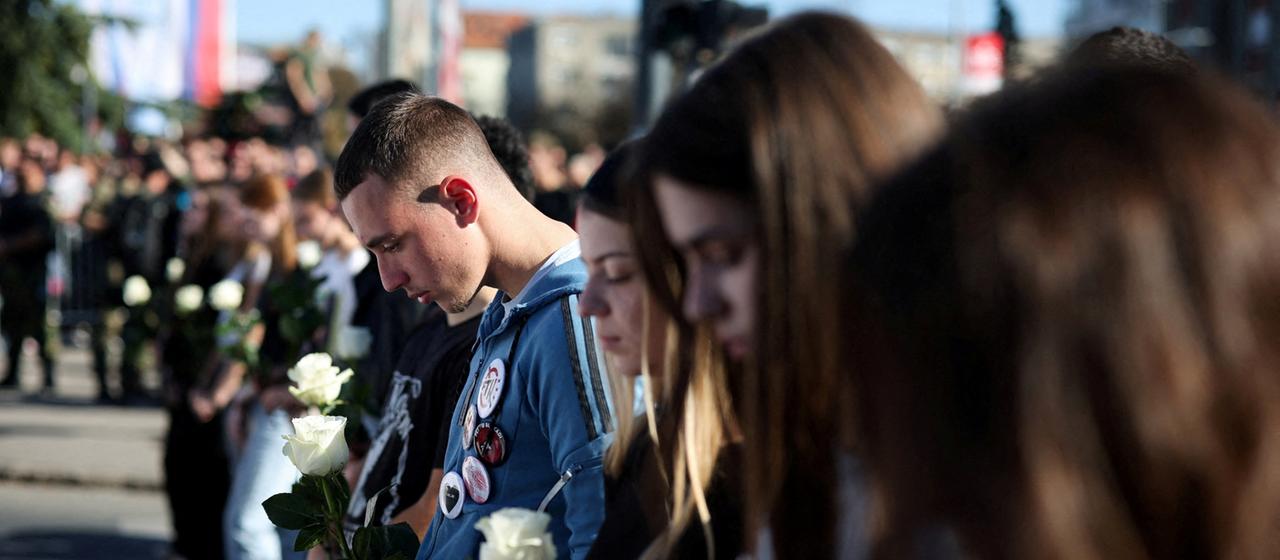
A collapsed canopy buried people at the train station in Novi Sad, Serbia, a year ago. Corruption and negligence are considered the cause. The resulting wave of protests is putting pressure on the authoritarian President Vucic.
One year after the collapse of the train station roof in the Serbian city of Novi Sad, tens of thousands of people there commemorated the 16 victims of the disaster.
From 11:52 a.m., the time of the collapse on November 1, 2024, mourners observed 16 minutes of silence. The disaster had triggered the largest protests in the country in decades.
"Great pain and sorrow"
Along a makeshift fence near the damaged station entrance, people laid flowers and lit candles. Svetlana, 45, said she felt"great pain and sorrow."
March as a protest action
Since Friday, people from all over the country have come to Novi Sad to participate in the commemoration. Thousands of them walked from the capital, Belgrade, about 100 kilometers away. Others even walked from Novi Pazar, a city about 340 kilometers south of Belgrade – a journey that took them a symbolic 16 days in remembrance of the 16 victims.
In Novi Sad, Serbia's second-largest city, 14 people, including two children, were initially killed when the train station roof collapsed. Two more people later succumbed to their injuries. The main train station had only fully reopened in July 2024 after years of renovations.
Disaster triggers wave of protests
The protests began almost two weeks after the Novi Sad disaster. They were initiated by students who occupied their universities and drew attention to themselves with road blockades. The demands for the rule of law and accountability for those in power were paramount at the time.
The students' persistent actions convinced more and more citizens to join the protest movement. For several months now, the movement has been demanding early elections.
Observers say that the movement has succeeded in shaking up a previously apathetic population."The movement has given Serbia hope," wrote the independent weekly newspaper Vreme in a commentary in its latest issue.
Vucic responds with repression
President Vucic has been determining Serbia's fate in various roles since 2012. He makes most decisions alone. The renovation of the Novi Sad train station is part of the new Belgrade-Budapest railway line. Chinese companies are the general contractors. For Vucic, it is a prestige project. He responded to the protests with police violence, judicial repression, and disinformation campaigns.
While demonstrators gathered again in Belgrade on the day of remembrance, Vucic and several ministers attended a ceremony at the Cathedral of Saint Sava to mark the anniversary of the railway station disaster.
Investigations by the public prosecutor's office
The Serbian public prosecutor's office launched an investigation shortly after the disaster. In September, the prosecutor's office filed charges against 13 alleged perpetrators, including former construction minister Goran Vesic. However, the charges still need to be confirmed by the court, which is why a trial cannot yet take place.
The European Public Prosecutor's Office (EPPO) is also investigating the possible misuse of EU funds during the station's renovation.

